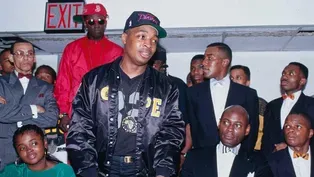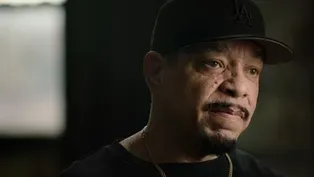
How Jesse Jackson’s ‘84 Run Empowered the Black Community
Clip: Episode 2 | 2m 29sVideo has Closed Captions
The 1980s was a time of urban decay, but also saw an expansion of the Black middle class.
The 1980s was a time of urban decay, but also saw an expansion of the Black middle class. Featuring Reverend Al Sharpton, Dr. Hasan Kwame Jeffries, and Public Enemy's Chuck D.
Problems with Closed Captions? Closed Captioning Feedback
Problems with Closed Captions? Closed Captioning Feedback

How Jesse Jackson’s ‘84 Run Empowered the Black Community
Clip: Episode 2 | 2m 29sVideo has Closed Captions
The 1980s was a time of urban decay, but also saw an expansion of the Black middle class. Featuring Reverend Al Sharpton, Dr. Hasan Kwame Jeffries, and Public Enemy's Chuck D.
Problems with Closed Captions? Closed Captioning Feedback
How to Watch Fight the Power: How Hip Hop Changed the World
Fight the Power: How Hip Hop Changed the World is available to stream on pbs.org and the free PBS App, available on iPhone, Apple TV, Android TV, Android smartphones, Amazon Fire TV, Amazon Fire Tablet, Roku, Samsung Smart TV, and Vizio.

Chuck D, Lorrie Boula and Yemi Bamiro
PBS spoke with Executive Producers Chuck D and Lorrie Boula, and Series Director Yemi Bamiro, about the evolution of Hip Hop, its influence on popular culture, the next generation, and more.Providing Support for PBS.org
Learn Moreabout PBS online sponsorship- The 1980s was a discovery of white America and the mainstream finding out that oh, Black folks not only are they people too, but they damn sure are efficient doing whatever they choose to do.
(pensive music) (sirens ringing) - Moving into the 1980s, we're seeing massive urban decay.
But at the same time as you have that, you have an expanding African American middle class.
(pensive music) The Black middle class grows from the late 1960s through the early 1980s.
That is a reflection of the real tangible successes and gains of the civil rights era.
(pensive music) - We have now won access to public facilities, to the right to register, to vote to the franchise, to certain positions of political power.
(pensive music) - In the early '80s, you had these kinds of real signs of hope.
Reverend Jackson raising our sights with his presidential run.
- We'll not be on the outside looking in.
We will be on the inside and we will be heard.
(crowd cheering) We will be heard.
- [Supporters] Run, Jesse, run.
- And he made it seem for the first time possible that we could win a nomination that's known the presidency.
- If we run, we may lose.
If we do not run, we're guaranteed to lose.
But in running, we gain our self-respect and in running, the masses register.
In running, our friends can no longer take us for granted.
- At the same time, there was a large strand of Black nationalism.
(pensive music) (audience clapping) Minister Farrakhan came out of that base and began energizing a lot of people.
(audience cheering) - They are friends.
One a candidate for president of the United States, the other, Black Muslim Louis Farrakhan, leader of the Nation of Islam, a Black nationalist organization.
Its position taken as a reaction to what it terms white racism in American society.
- There's always been this dichotomy in African American community, those that would fight for us to break in society and succeed.
And those that say, forget about them, let's build our own.
Video has Closed Captions
Preview: Ep2 | 30s | Explore the 1980s and the birth of Hip Hop as social commentary. (30s)
The Police and Gangs Of Southern California
Video has Closed Captions
Clip: Ep2 | 2m 18s | Police violence influences the Hip Hop sounds coming out of Southern California. (2m 18s)
Providing Support for PBS.org
Learn Moreabout PBS online sponsorshipSupport for PBS provided by:













